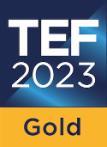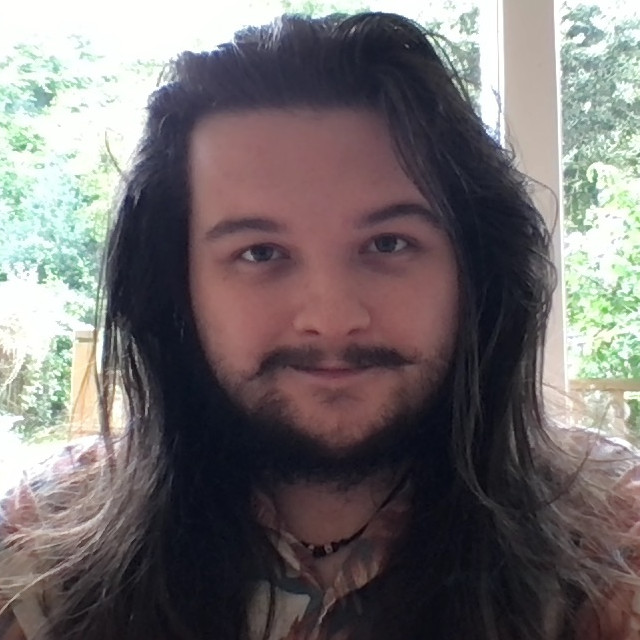Computer Science (Cyber Security) - BSc (Hons)
Establish a firm foundation in the discipline of Computer Science and specialist knowledge in Cyber Security - informed by our own research and industry trends. From cryptography to the design of secure systems, you will develop the techniques required to implement secure IT solutions in this highly specialised and sought-after field.
We are currently refreshing our curriculum for 2025/26 to reflect best practice and academic development, and updated course content and modules will be available on this course page in September 2024.
Year of entry
- 2025
Course type
- Single Honours
UCAS code
- I190
Duration of study
- 3 years / 4 years with international or placement year
Why study Computer Science (Cyber Security) at Keele University?
Related courses
Accreditation and professional recognition
Accredited by the BCS - The Chartered Institute for IT
 BCS - The Chartered Institute for IT is a professional body which accredits computing and IT courses in the UK.
BCS - The Chartered Institute for IT is a professional body which accredits computing and IT courses in the UK.
The accreditation provides an indicator of quality to employers and offers a pathway to professional registrations such as CITP (Chartered IT Professional), CEng (Chartered Engineer), IEng (Incorporated Engineer) and RITTech (Registered IT Technician).
This accreditation is on the condition that a student must pass the final year project at 40% or above.
Teaching Excellence Framework GOLD

Keele University has been awarded the highest rating of gold in the teaching excellence framework (TEF), 2023. The TEF assessment identifies excellence in the educational experience and outcomes of our students, focusing on all undergraduate courses and students.

"Studying at Keele has given me the confidence to take on challenges and step outside of my comfort zone. The small class sizes and constant support from staff has enabled me to take my learning to a deeper level and develop a wider skill set."
Additional opportunities
There are a range of additional opportunities available when studying this course.
Please note, undertaking one may impact upon the availability of another.
Gain experience in industry
From a year working in industry to paid internships, summer research projects and practical modules, there are many opportunities embedded throughout the curriculum to develop and enhance your practical skills. Paid or voluntary experience in your area of interest will not only demonstrate your commitment and passion, but will also enable you to make meaningful connections by networking with experts in the field.
Study abroad
Studying abroad is an exciting opportunity to experience and appreciate different cultural perspectives and to establish international networks. It also demonstrates your ability to embrace new experiences and enables you to immerse yourself in another culture whilst developing your independence and cultural awareness. We offer exchange opportunities with a wide variety of partner institutions.
Societies
We have a wealth of student-led societies which cover a diverse range of interests. Joining a society related to Computer Science is a great opportunity to continue to develop your computing, web design or multimedia skills away from your studies. This is another excellent way of demonstrating your genuine interest for the area and can be beneficial when it comes to applying for graduate roles. It’s also a great way to meet like-minded people, make friends and share interests with fellow students.
Entry requirements
The following section details our typical entry requirements for this course for a range of UK and international qualifications. If you don’t see your qualifications listed, please contact us to find out if we can accept your qualifications. If you don't think you'll meet the entry requirements specified, you may be able to gain entry to this course via a Foundation Year.
Typical offer
Please ensure that you read the full entry requirements by selecting your qualifications from the dropdown menu below. This will include any subject specific, GCSE/Level 2 Maths, and English language requirements you may need.
Please select your qualification from the drop-down list below for the full entry requirement information
A Level
BBB in three A levels
OR
BBC in three A levels including B in Maths or Computer Science
Contextual Offer: BCC in three A levels
OR
BCD in three A levels including B in Maths or Computer Science
You will also need: 6 / B in GCSE Maths or Level 2 Functional Skills Maths, plus an English language qualification (see below)
BTEC Extended Diploma / National Extended Diploma
DDM
OR
DMM in any of the following BTEC Extended Diplomas / National Extended Diplomas: Engineering
Contextual Offer: DMM
OR
MMM in any of the following BTEC Extended Diplomas / National Extended Diplomas: Engineering
You will also need: 6 / B in GCSE Maths or Level 2 Functional Skills Maths, plus an English language qualification (see below)
BTEC National Diploma / Diploma
Distinction and Distincton in any BTEC National Diploma / Diploma and C in one A Level
OR
Distinction and Merit in BTEC Diploma and B in Maths or Computer Science
You will also need: 6 / B in GCSE Maths or Level 2 Functional Skills Maths, plus an English language qualification (see below)
BTEC National Extended Certificate / Subsidiary Diploma
Distinction in any BTEC National Extended Certificate / Subsidiary Diploma and BC in two A Level
OR
Merit in any BTEC National Extended Certificate / Subsidiary Diploma and BB in two A Levels including B in Maths or Computer Science
You will also need: 6 / B in GCSE Maths or Level 2 Functional Skills Maths, plus an English language qualification (see below)
T Level
Merit in any T level
You will also need: 6 / B in GCSE Maths or Level 2 Functional Skills Maths, plus an English language qualification (see below)
International Baccalaureate Diploma
555 in three Higher Levels or 30 points
OR
554 including 5 in Maths (any) or Computer Science or 29 points including 5 in Higher Level Maths (any) or Computer Science
Contextual Offer: 554 in three Higher Levels or 29 points
OR
543 including 5 in Maths (any), or Computer Science or 28 points including 5 in Higher Level Maths (any) or Computer Science
You will also need: 6 / B in GCSE Maths or Level 2 Functional Skills Maths, or 5 in IB Middle Years Maths, or 4 in IB Diploma Standard Level Maths (any), plus an English language qualification (see below)
International Baccalaureate Career-Related Programme
We encourage applications with the IBCP but recognise that your combination of qualifications may differ depending on where you are studying.
If you are taking a BTEC National Diploma / Diploma with one or more Higher Levels, your offer will be similar to our BTEC + A level offer (see 'BTEC National Diploma / Diploma') but with an HL requirement of 6 for A, 5 for B, or 4 for C.
For any other combination, please contact the University Admissions Team for advice.
You will also need: 6 / B in GCSE Maths or Level 2 Functional Skills Maths, plus an English language qualification (see below)
Access to HE Diploma
122 UCAS points in any Access to HE Diploma, including Distinction in at least 30 Level 3 credits.
OR
112 UCAS points in an Access to HE Diploma with Maths or Computer Science related content, including Distinction in at least 15 Level 3 credits. Please contact the University Admissions Team for advice on whether your chosen course would qualify.
You will also need: 6 / B in GCSE Maths or Level 2 Functional Skills Maths, plus an English language qualification (see below)
Welsh Baccalaureate / Bagloriaeth Cymru
The Advanced Skills Challenge Certificate is equivalent to one full A level at the same grade and can be included alongside 2 other A levels in a standard A level offer for this course (see A level). All subject specific requirements will still need to be met.
Scotland - Highers and Advanced Highers
BBBCC in five Highers, or CC in two Advanced Highers and CC in two Highers, or CCC in three Advanced Highers
OR
BCCCC in five Highers including Maths or Computer Science Higher, or CD in two Advanced Highers and CC in two Highers including Maths or Computer Science Higher or Advanced Higher, or CCD in three Advanced Highers including Maths or Computer Science Advanced Higher
You will also need: B in National 5 Maths, or C in Higher Maths (including as one of the Highers taken as part of your offer), or 6 / B in GCSE Maths or Level 2 Functional Skills Maths, plus an English language qualification (see below)
Extended Project Qualification (EPQ)
If you have B or higher in the EPQ and are studying A levels, BTEC, the International Baccalaureate Diploma, or an Access to HE Diploma, you will typically receive an alternative offer which will be lower than the standard offer. Please see 'Alternative and contextual offers' below.
Core Maths
If you have B or higher in Core Maths and are studying A levels, BTEC, the International Baccalaureate, or an Access to HE Diploma, you will typically receive an alternative offer which will be lower than the standard offer. Please see 'Alternative and contextual offers' below.
Ireland - Leaving Certificate
H3, H3, H4, H4, H4, H4 in the Irish Leaving Certificate
OR
H3, H4, H4, H4, H4, H4 in the Irish Leaving Certificate, including H4 in Maths or Computer Science
You will also need: O3 / H6 in Maths, plus an English language qualification (see below)
China - Gaokao
73% in the Gaokao
OR
70% in the Gaokao including 70% in Maths or Computer Science
You will also need: 65% in Senior Secondary School or Gaokao Maths, plus an English language qualification (see below)
India - Standard XII
Average of 70% from four subjects in the ICSE, CBSE or Western Bengal Standard XII, or average of 75% from four subjects in any other Standard XII
OR
Average of 65% from four subjects, including 70% in Maths or Computer Science in the ICSE, CBSE or Western Bengal Standard XII, or average of 70% from four subjects including 75% in Maths or Computer Science in any other Standard XII
You will also need: 7 or C1 in Secondary School Examination Maths, or Pass in Standard XII Maths, plus an English language qualification (see below)
Germany - Abitur
2.2 overall average in the Abitur
OR
2.4 overall average in the Abitur, including 12 in Maths or Computer Science
You will also need: 11 in Maths in the Abitur, plus an English language qualification (see below)
France - Baccalaureate
13 in the French Baccalaureate / International Option Baccalaureate / Baccalauréat Français International.
OR
12 in the French Baccalaureate/International Option Baccalaureate including 13 in Maths or Computer Science, or 12.5 in the Baccalauréat Français International including 12.5 in Maths or Computer Science
You will also need: an English language qualification (see below)
Hong Kong - Diploma
444 from two electives and one core subject in the HKDSE
OR
443 from two electives and one core subject in the HKDSE including 4 in Maths or Computer Science
You will also need: 3 in HKDSE Maths, plus an English language qualification (see below)
Spain - Bachillerato
Overall average of 7.4 in the Título de Bachillerato
OR
Overall average of 7.0 in the Título de Bachillerato including 8 in Maths or Computer Science
You will also need: 6 in Graduado en Educación Secundaria (GES) Maths or 6.5 in Título de Bachiller Maths, plus an English language qualification (see below)
Italy - Diploma di Esame di Stato
80% in the Esame di Stato
OR
75% in the Esame di Stato including 8 in Maths or Computer Science
You will also need: 6 in Maths in the Diploma, plus an English language qualification (see below)
Cyprus - Apolytirion
18 / 86% in the Apolytirion
OR
17.5 / 83% in the Apolytirion including 18 in Maths or Computer Science
You will also need: 15 in Maths in the Apolytirion, plus an English language qualification (see below)
Portugal
Overall average of 15.5 in a secondary certificate
OR
Overall average of 15 including 16 in Maths or Computer Science
You will also need: 11 in secondary certificate Maths, plus an English language qualification (see below)
Canada - Diploma
65% / BBBCC in five courses in the Grade 12 Diploma
OR
60% / BCCCC in five courses in the Grade 12 Diploma including 70% in Advanced Functions and 70% in Calculus and Vectors or Computer Science
You will also need: 60% in Grade 11 Maths, plus an English language qualification (see below)
Kenya - KCSE / Diploma
We do not accept the Kenya Certificate of Secondary Education for direct entry. However, you can apply to study an International Foundation Year at Keele University International College. On successful completion, you can progress to an undergraduate degree at Keele
We may accept a two year Diploma. Please contact the University Admissions Team for advice.
Nigeria - Senior School Certificate / OND
We do not accept the Senior School Certificate (WAEC or NECO) for direct entry. However, you can apply to study an International Foundation Year at Keele University International College. On successful completion, you can progress to an undergraduate degree at Keele.
We may accept an Ordinary National Diploma with GPA of 2.5 or a Merit / Lower Credit. Please contact the University Admissions Team for advice.
USA - Advanced Placement
444 from three Advanced Placement subjects
OR
443 from three Advanced Placement subjects including Calculus (either) or Computer Science
You will also need: Grade B in Grade 12 High School Diploma Maths, plus an English language qualification (see below)
Ghana
We do not accept the West African Senior School Certificate Examination for direct entry. However, you can apply to study an International Foundation Year at Keele University International College. On successful completion, you can progress to an undergraduate degree at Keele.
Sri Lanka - Advanced Level
BBB in three Advanced levels
OR
BBC including B in Combined Maths or Computer Science
You will also need: B in O-Level Maths, plus an English language qualification (see below)
Malaysia - STPM
BBB in three Principal level subjects in the STPM
OR
BBC in three Principal level subjects in the STPM including B in Maths or Computer Science
You will also need: B in SPM Maths, plus an English language qualification (see below)
Pakistan - Secondary School Certificate
We do not accept the Secondary School Certificate for direct entry. However, you can apply to study an International Foundation Year at Keele University International College. On successful completion, you can progress to an undergraduate degree at Keele.
Singapore - A Levels (H2)
BBB in three H2 levels
OR
BBC in three H2 levels including B in Combined Maths or Computer Science
You will also need: B in O-Level Maths, plus an English language qualification (see below)
European Baccalaureate
72% overall
OR
70% overall with with 7 in Maths (5 period) or Computer Science (5 period)
You will also need: 6.5 in European Baccalaureate Maths, plus an English language qualification (see below)
NCUK
Pass NCUK Foundation Year with BBB and Grade C in EAP English Language module
OR
Pass NCUK Foundation Year with BBC including B in Mathematics or Computer Science and Grade C in EAP English Language module
You will also need: 6 / B in GCSE Maths or international equivalent
Uganda - Advanced Certificate of Education
BBB in three Principal level subjects in the Advanced Certificate of Education
OR
BBC in three Principal level subjects in the Advanced Certificate of Education including B in Maths or Computer Science
You will also need: 4 in UACE or UCE Maths, plus an English language qualification (see below)
Zimbabwe - Advanced Level GCE
BBB in three Advanced Level subjects
OR
BBC in three Advanced Level subjects including B in Pure Maths or Computer Science
You will also need: 4 / C in GCSE Maths or B in Maths O Level or Level 2 Functional Skills Maths, plus an English language qualification (see below)
English language requirements
All of our courses require an English language qualification or test. For most students, this requirement can be met with a 4 or C in GCSE English. Please see our English Language guidance pages for further details, including English language test information for international students. For those students who require an English language test, this course requires a test from Group A.
Alternative and contextual offers
We're committed to ensuring equality of opportunity to all our applicants with the potential and motivation to succeed, regardless of background. That's why we operate a range of alternative offer schemes with clear eligibility criteria, including contextual offers, offers for those studying within the Keele region, and recognising a range of additional qualifications in your offer.
General information
The entry grades outlined in this section indicate the typical offer which would be made to candidates, along with any subject specific requirements. This is for general information only. Keele University reserves the right to vary offer conditions depending upon a candidate's application.
Central Science Laboratories
Develop your practical skills in Keele's state-of-the-art Central Science Laboratories

"For my third year project, I created a Neuroevolutionary algorithm that could be used to predict the way a constituency would vote in a general election based on demographic data of the area such as age distribution, number of vehicles owned, and level of education. Being able to bring together all of the skills I had acquired throughout the course into an adventurous piece of work meant that to this day it is still one of my proudest achievements."

"Keele's School of Computer Science and Mathematics helped me turn a freshly discovered interest in computing into a full-fledged passion for all things Computer Science. My course had the perfect combination of compelling subject matter and insightful lecturers which resulted in a genuine excitement for each tutorial, lecture & workshop. During my placement year, Keele supported me in my 15-month software engineering internship with IBM - a true industry leader - that then evolved into full-time employment following my final year of study."
Foundation year
Our Foundation Year provides an excellent alternative route to Keele, providing a unique opportunity to better prepare for your chosen degree, and with guaranteed entry onto your undergraduate course once you successfully complete your Foundation Year.
This extra year of study can improve your academic skills, expand your subject knowledge, give you a better understanding of higher education and, perhaps most importantly of all, build your confidence.
Keele University is consistently ranked among the top universities for student satisfaction, and we have over 70 years' experience of teaching a foundation year to students. On the Keele Foundation Year, you'll study on campus, joining our undergraduate community from the outset, with access to all the facilities and support that you'd get as an undergraduate student at Keele.
The information in this Foundation Year section is for UK/Home applicants. Where an international Foundation Year is available, please see the 'Information for international students' tab.
The information within this page is for students wishing to start their studies in September. If you would like to start this course in January, please visit our January pages for further details.
Course content
Our Foundation Year allows you to develop your critical thinking, academic reading, writing, and communication study skills along with subject-specific knowledge and skills which will be invaluable in your academic studies and beyond. Upon meeting the progression criteria and successfully completing our Foundation Year, you will automatically progress into your Keele undergraduate degree with the confidence that you have the skills, and knowledge needed to successfully complete your course.
This Foundation Year is a two-semester programme which provides a tailored pre-degree programme of study to better prepare you for the BSc (Hons) Computer Science (Cyber Security). For example, Foundations of Computational Theory and Programming will introduce you to the key principles of Computer Science and programming, while Advancing Programming will allow you to hone these skills in an individual project, all of which will be useful in your degree and professional career.
You will develop new, flexible and abstract ways of thinking, which will enable you to use logic to solve problem-based activities. You will be introduced to key principles such as Boolean algebra, error control coding and the development of the modern computer, while also beginning to develop your skills in using high-level programming languages. In addition to subject-specific modules, you will complete a skills module, which will underpin your ability to communicate data and information accurately. Semester Two continues to build on your understanding of these techniques. Your programming skills will be further developed, while exploring new principles such as working for clients and designing interfaces. Course content has been developed in collaboration with degree teaching teams, so that by the time you begin Year 1, you will be ready to excel at your studies, as the majority of our Foundation Year students do.
Find out more about the Keele Foundation Year, including information about teaching and assessment methods by visiting the Foundation Year homepage.
Course structure
The module details given below are indicative and will give you a good idea of the range of subjects that we teach. We regularly review our teaching to ensure that the modules we offer are up-to-date; therefore, the modules available to study are liable to change.
Semester one modules
| FYO-00211 |
Foundations in Numerical and Quantitative Methods for Scientists |
15 credits |
| FYO-00221 | Foundations of Computational Theory and Programming | 30 credits |
| FYO-00187 | Academic Skills for Computer Scientists and Mathematicians | 15 credits |
Semester two modules
| FYO-00233 | Advancing Applied Maths and Computing - Making Decisions | 15 credits |
| FYO-00225 | Advancing Programming | 15 credits |
| FYO-00235 | Advancing Applied Maths and Computing - Logic, Codes & Cryptography | 15 credits |
| FYO-00227 | Advancing Computing: Client-Led Collaborative Design | 15 credits |
Entry requirements
The entry grades outlined in this section indicate the likely offer or range of offers which would be made to candidates along with any subject specific requirements. This is for general information only. Keele University reserves the right to vary offer conditions depending upon a candidate’s application. Read more about our undergraduate entry requirements.
- 56 UCAS points including at least one Level 3 qualification (such as an A Level, BTEC, Access Course, or T Level).
- Plus C in GCSE English / Level 2 Functional Skills English and C in GCSE Maths / Level 2 Functional Skills Maths.
How to apply
UK students will need to apply for BSc (Hons) Computer Science with Foundation Year (UCAS code G401) through UCAS at www.ucas.com.
Direct entry students
If you are a UK student, already have your qualifications, are not expecting any further results and only wish to apply to Keele, please contact the Admissions Office directly.
The information in this Foundation Year section is for UK/Home applicants. Where an international Foundation Year is available, please see the 'Information for international students' tab.
We also offer a January start for some of our Foundation Year courses. Adopting a blended learning approach, the January start is particularly useful for students wishing to return to education following time out of studying, or who are seeking a flexible approach to their Foundation Year studies. Our January start is available across most of our Science, Humanities, Social Science and Business courses.
Whilst still being a full-time course, our blended delivery model combines live teaching sessions - both online and on-campus - with self-directed study, enabling you to predominantly study at a time that suits your lifestyle. You will benefit from weekly online taught sessions which encourage you to engage with your teachers and peers.
In addition to online study there will be a series of full study days that you will be required to attend throughout each semester. These sessions may include lab-based activities, group work, review of course and assessment materials studied online. They will emphasise opportunities for you to deepen your knowledge and understanding of your chosen route.
Please refer to the September start tab for more information about the entry requirements and what you will study. The modules that you will take on a January start Foundation Year will be similar to those for the September start, but on a compressed timescale and tailored to a blended learning approach (with the majority of learning taking place online).
For more information, including fees, the UCAS code for this course, how to apply, and how you will be taught, please visit our January Start Foundation Year webpage.
Our International Foundation Year is delivered on campus through Keele University International College (KUIC). Find out more about the International Foundation Year options on the KUIC website.
Discover the Keele difference
Everything’s on your doorstep at Keele, and you’ll soon feel at home and make friends wherever you go.
We help students manage their money and ensure that they receive any funding for which they may be eligible.
Make yourself more employable after graduation by taking advantage of the whole host of additional opportunities.





